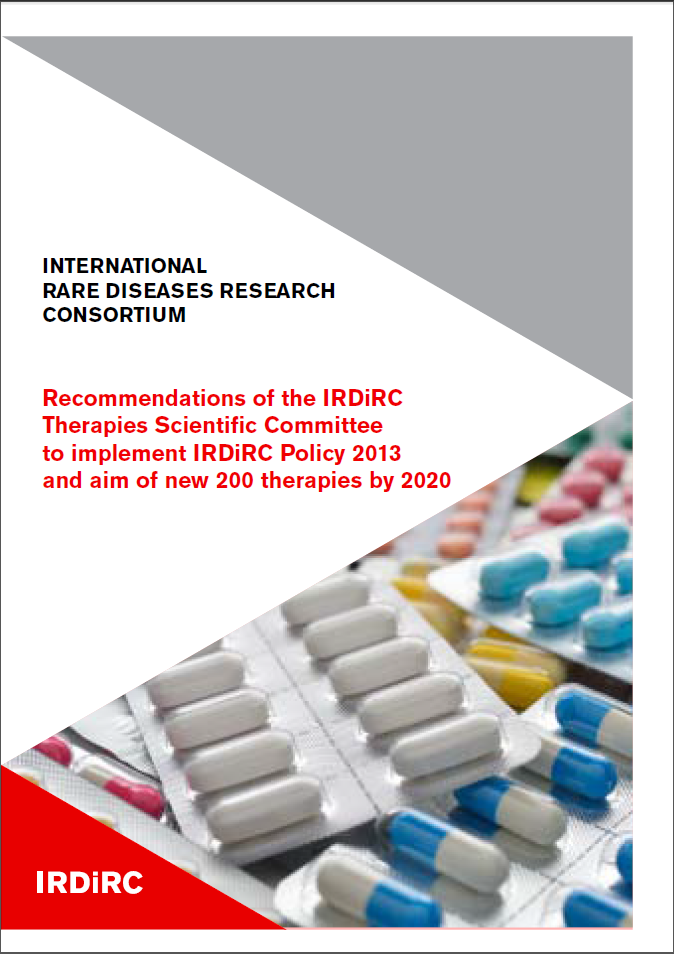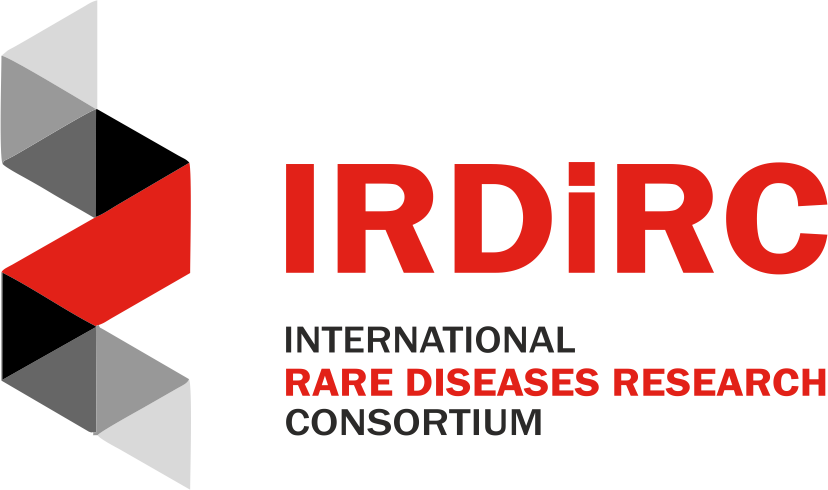Scientific Publications
2024
- Global health for rare diseases through primary care. Gareth Baynam, Adam L. Hartman, Catherine V. Letinturier et al. European Journal of Medical Genetics, 2024. Access the paper here.
- Addressing Diagnostic Gaps and Priorities of the Global Rare Diseases Community: Recommendations from the IRDiRC Diagnostics Scientific Committee. David R. Adams, Clara DM van Karnebeek, Sergi Beltran Agullo, et al. European Journal of Medical Genetics, 2024. Access the paper here.
- Getting your DUCs in a row – standardising the representation of Digital Use Conditions. Francis Jeanson, Spencer J. Gibson, Pinar Alper, et al. Scientific Data, 2024. Access the paper here.
- Common conditions of use elements. Atomic concepts for consistent and effective information governance. Maria del Carmen Sanchez Gonzalez, Pim Kamerling, Mariapia Iermito, et al. Scientific Data, 2024. Access the paper here.
-
Advancing diagnosis and research for rare genetic diseases in Indigenous peoples. Gareth Baynam, Daria Julkowska, Sarah Bowdin, et al. Nature Genetics, 2024. Access the paper here.
-
Drug repurposing for rare: progress and opportunities for the rare disease community. Anneliene Hechtelt Jonker, Daniel O’Connor, Anna Maria Gerdina Pasmooij, et al. Frontiers in Medicine. Access the paper here.
2023
- IRDiRC Drug Repurposing Guidebook: making better use of existing drugs to tackle rare diseases. Anneliene Jonker, Simon Day, Michaela Gabaldo, Heather Stone, Martin de Kort, Daniel J. O’Connor & Anna Maria Gerdina Pasmooij. Access the paper here.
- Defining rare conditions in the era of personalized medicine. Daniel J. O’Connor, Michela Gabaldo, Annemieke Aartsma-Rus and Anneliene Hechtelt Jonker. Access the paper here.
- The IRDiRC Chrysalis Task Force: making rare disease research attractive to companies. Katherine L. Beaverson, Daria Julkowska, Mary Catherine V. Letinturier, Annemieke Aartsma-Rus, Jennifer Austin, Juan Bueren, Simon Frost, Misako Hamamura, Jane Larkindale, Greg LaRosa, Rita Magenheim, Annamaria Merico, Anna Maria Gerdina Pasmooij, Vinciane Pirard, Nicholas Ekow Thomford, Michihiko Wada, Durhane Wong-Rieger, and Adam L. Hartman. Access the publication here.
- How to START? Four pillars to optimally begin your orphan drug development. Anneliene Hechtelt Jonker, Liliana Batista, Michela Gabaldo, Virginie Hivert & Diego Ardigo on behalf of the IRDiRC ODDG TF and IRDiRC TSC. Access the paper here.
- Targeting shared molecular etiologies to accelerate drug development for rare diseases. Galliano Zanello, Macarena Garrido-Estepa, Ana Crespo, Daniel O’Connor,
Rima Nabbout, Christina Waters, Anthony Hall, Maurizio Taglialatela, Chun-Hung Chan, David A Pearce, Marc Dooms, Philip John Brooks. Access the paper here. - Towards the international interoperability of clinical research networks for rare diseases: recommendations from the IRDiRC Task Force. Rima Nabbout, Galliano Zanello, Dixie Baker, Lora Black, Isabella Brambilla, Orion J.Buske, Laurie S. Conklin, Elin Haf Davies, Daria Julkowska, Yeonju Kim, Thomas Klopstock, Harumasa Nakamura, Kim G. Nielsen, Anne R. Pariser, Jose Carlos Pastor, Maurizio Scarpa, Maureen Smith, Domenica Taruscio, Stephen Groft. Orphanet Journal of Rare Diseases, 2023. Access the paper here.
- Sustainable approaches for drug repurposing in rare diseases: recommendations from the IRDiRC Task Force. Galliano Zanello, Diego Ardigò, Florence Guillot, Anneliene H. Jonker, Oxana Iliach, Hervé Nabarette, Daniel O’Connor, Virginie Hivert. Rare Disease and Orphan Drugs Journal, 2023. Full text available here.
2022
- Recommendations from the IRDiRC Working Group on methodologies to assess the impact of diagnoses and therapies on rare disease patients. Galliano Zanello, Chun-Hung Chan, David A. Pearce on behalf of IRDiRC Working Group. Orphanet Journal of Rare Diseases, 2022. Access the paper here.
- Research on rare diseases: 10 years of progress and challenges at IRDiRC. Lucia Monaco, Galliano Zanello, Gareth Baynam, Anneliene H. Jonker, Daria Julkowska, Adam L. Hartman, Daniel O’Connor, Chiuhui Mary Wang, Durhane Wong-Rieger, David A. Pearce. Nature Reviews Drug Discovery, 2022. Full text available here and supplementary information here.
2021
- COVID-19 and rare diseases: Reflections and recommendations by the International Rare Diseases Research Consortium. Chiuhui Mary Wang, Daria Julkowska, Chun-Hung Chan , David A. Pearce, Lucia Monaco. Rare Disease and Orphan Drugs Journal, 2021. Access the paper here.
- Essential List of Medicinal Products for Rare Diseases – Recommendations from the IRDiRC Rare Disease Treatment Access Working Group. William A. Gahl, Durhane Wong-Rieger, Virginie Hivert, Rachel Yang, Galliano Zanello, Stephen Groft. Orphanet Journal of Rare Diseases, 2021. Access the paper here.
2020
- Barriers and considerations for diagnosing rare diseases in indigenous populations. Carla S. D’Angelo, Azure Hermes, Christopher R. McMaster, Elissa Prichep, Étienne Richer, Francois H. van der Westhuizen, Gabriela M. Repetto, Gong Mengchun, Helen Malherbe, Juergen K. V. Reichardt, Laura Arbour, Maui Hudson, Kelly du Plessis, Melissa Haendel, Phillip Wilcox, Sally Ann Lynch, Shamir Rind, Simon Easteal, Xavier Estivill, Yarlalu Thomas and Gareth Baynam. Frontiers in Pediatrics, 2020. Access the paper here.
-
Boosting delivery of rare disease therapies: the IRDiRC Orphan Drug Development Guidebook. Orphan Drug Development Guidebook“.
2019
- Privacy-Preserving Linkage of Genomic and Clinical Data Sets. Dixie B. Baker, Bartha M. Knoppers, Mark Phillips, David van Enckevort, Petra Kaufmann, Hanns Lochmuller, and Domenica Taruscio. IEEE/ACM Transactions on Computational Biology and Bioinformatics, 2019. Access the paper here.
Paper authored by the joint IRDiRC-GA4GH Task Force on “Privacy-preserving data linkage“. - Ethical, legal, and social issues (ELSI) in rare diseases: a landscape analysis from funders. Adam L. Hartman, Anneliene Hechtelt Jonker, Melissa A. Parisi, Daria Julkowska, Nicole Lockhart and Rosario Isasi. European Journal of Human Genetics, 2019. Access the paper here
- The use or generation of biomedical data and existing medicines to discover and establish new treatments for patients with rare diseases – recommendations of the IRDiRC Data Mining and Repurposing Task Force.
Noel T. Southall, Madhusudan Natarajan, Lilian PL. Lau, et al. Orphanet Journal of Rare Diseases, 2019. Access the paper here - Model consent clauses for rare disease research
Minh Thu Nguyen, Jack Goldblatt, Rosario Isasi, et al.
BMC Medical Ethics, 2019. Access the paper here - A Diagnosis for All Rare Genetic Diseases: The Horizon and the Next Frontiers
Kym M. Boycott, Taila Hartley, Leslie G. Biesecker, et al.
Cell, March 2019. Access the paper here - International collaborative actions and transparency to understand, diagnose, and develop therapies for rare diseases
Kym M Boycott, Lilian PL LAU, Christine M Cutillo, Christopher P Austin.
EMBO Molecular Medicine, April 2019. Access the paper here
2018
- Unsolved recognizable patterns of human malformation: Challenges and opportunities
Kym M Boycott, David A Dyment, A Micheil Innes.
Am J Med Genet, November 2018. Access the paper here - Recommendations for the design of small population clinical trials
Simon Day, Anneliene H Jonker, Lilian LP Lau, et al.
Orphanet Journal of Rare Diseases, November 2018. Access the paper here - Responsible sharing of biomedical data and biospecimens via the “Automatable Discovery and Access Matrix” (ADA-M)
J Patrick Wooley, Emily Kirby, Josh Leslie, et al.
NPJ Genomic Medicine, July 2018. Access the abstract here
2017
- A Global Approach to Rare Diseases Research and Orphan Products Development: The International Rare Diseases Research Consortium (IRDiRC)
Christine M Cutillo, Christopher P Austin and Stephen C Groft .
Rare Diseases Epidemiology: Update and Overview, December 2017. Access the abstract here - The International Rare Diseases Research Consortium: policies and guidelines to maximize impact
Hanns Lochmüller, Josep Torrent i Farnell, Yann Le Cam, et al.
European Journal of Human Genetics, November 2017. Access the abstract here - Measuring what Matters to Rare Disease Patients – Reflections on the work by the IRDiRC Taskforce on Patient-Centered Outcome Measures
Thomas Morel and Stefan J Cano
Orphanet Journal of Rare Diseases, November 2017. Access the abstract here - Future of Rare Diseases Research 2017-2027: An IRDiRC Perspective
Christopher P Austin, Christine M Cutillo, Lilian PL Lau, et al.
Clinical and Translational Science, August 2017. Access the abstract here - Progress in Rare Diseases Research 2010-2016: An IRDiRC Perspective
Hugh JS Dawkins, Ruxandra Draghia-Akli, Paul Lasko, et al.
Clinical and Translational Science, August 2017. Access the abstract here - “IRDiRC Recognized Resources”: a new mechanism to support scientists to conduct efficient, high-quality research for rare diseases
Hanns Lochmüller, Yann Le Cam, Anneliene H Jonker, et al.
European Journal of Human Genetics, February 2017. Access the abstract here
2016
- IRDiRC-recommended
Ségolène Aymé
European Journal of Human Genetics, July 2016 Access the abstract here
2015
- The Matchmaker Exchange: a platform for rare disease gene discovery
Anthony A. Philippakis, Danielle R. Azzariti, Sergi Beltran, et al.
Human Mutation, October 2015. Access the abstract here
Recommendations

The members of the IRDiRC Therapies Scientific Committee (TSC) have discussed and agreed on a specific set of recommendations to guide policies and funding strategies so as to reach its original goal of 200 new therapies by 2020, based on IRDiRC Policies & Guidelines which were adopted in April 2013. They focus on the improvement of guidelines for the clinical development of orphan drugs; the alignment of scientific and regulatory guidance and the enhancement of the continuous data collection and assessment all along the life cycle of therapy.
- The Task Force working on Patient-Centered Outcome Measures (PCOM) has published the post-workshop report and its recommendations. This report is available for consultation.
- The Task Force working on Small Patient Clinical Trial (SPCT) has published the post-workshop report and its recommendations. This report is available for consultation.

